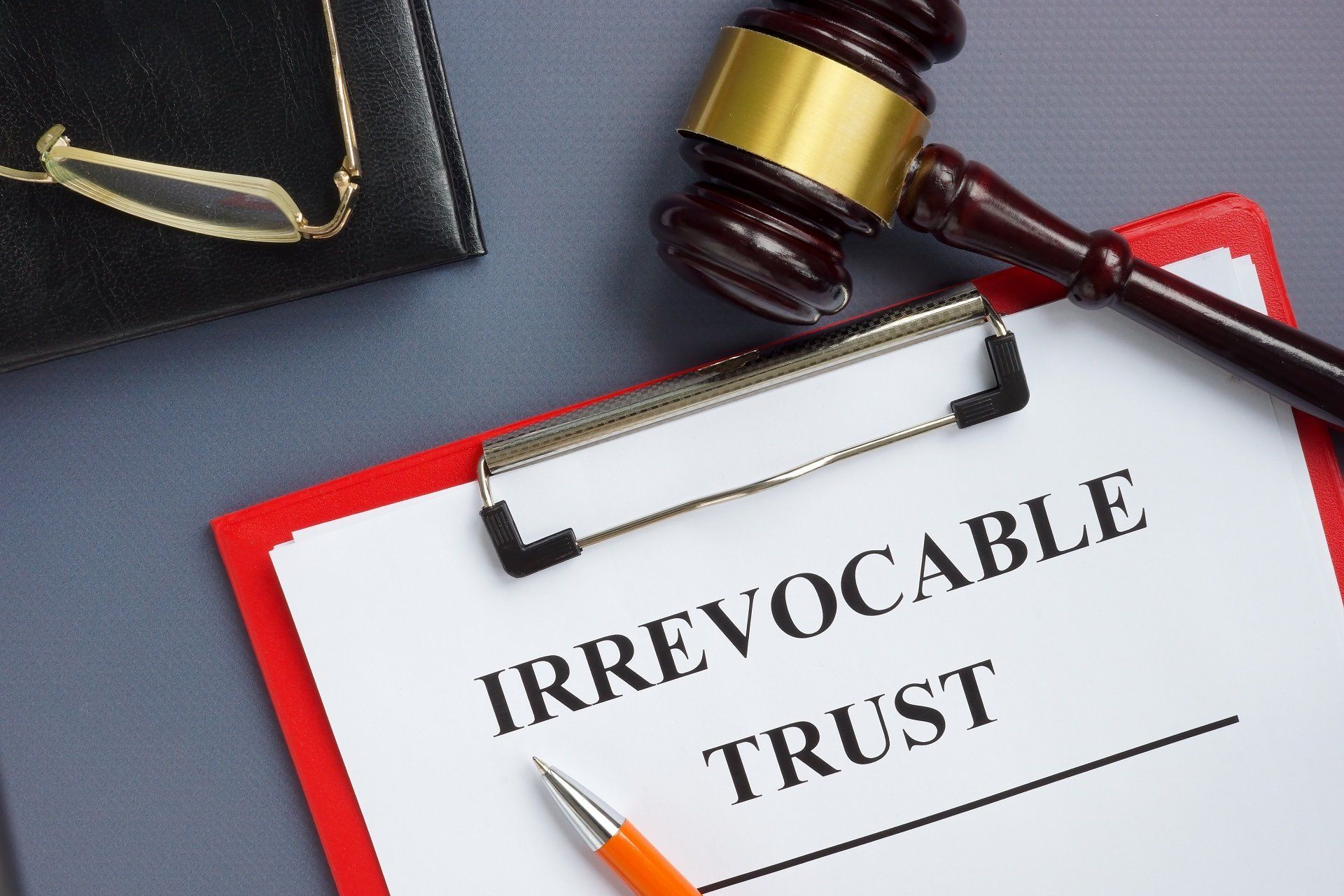
By admin Apr, 19, 2023 Featured
A trust fund is a good thing, a way for an estate to leave some money behind for family members, children, or the next generation. There many types of trusts and there are many rules that govern them. This also means that some trust funds can be revoked while some cannot be revoked. An irrevocable trust means that the trust cannot be changed, amended, or modified and in most cases cannot be canceled.
Trusts are a common estate planning tool used to manage and distribute assets. A trust is a legal agreement between a trustor (the person who creates the trust), a trustee (the person who manages the trust), and a beneficiary (the person who receives the benefits of the trust). Trusts can be revocable or irrevocable, and each type has its own advantages and disadvantages. In this article, we will explore irrevocable trusts in depth, including what they are, how they differ from revocable trusts, and how they can be used to manage real estate and life insurance assets.
What is a Trust Fund?
A trust fund is a financial account managed by a trustee on behalf of a beneficiary. The purpose of a trust fund is to ensure that the beneficiary has access to financial resources over time, rather than receiving a lump sum payment all at once. Trust funds are often used to provide for the education, health care, and general welfare of minors or other beneficiaries who are unable to manage their own financial affairs.
Revocable Trust vs. Irrevocable Trust
A revocable trust is a trust that can be changed or revoked by the trustor at any time during their lifetime. A revocable trust can be an effective tool for managing assets and avoiding probate, but it does not provide the same level of asset protection as an irrevocable trust.
An irrevocable trust, on the other hand, is a trust that cannot be changed or revoked by the trustor once it has been established. The trustor gives up control of the assets in the trust, which are then managed by the trustee for the benefit of the beneficiaries. Because the trustor no longer owns the assets in the trust, they are generally protected from creditors and estate taxes.
Things You Should Know About Irrevocable Living Trusts
An irrevocable living trust is a type of trust that is established during the trustor's lifetime. It is often used as an estate planning tool to protect assets from estate taxes and creditor claims. Some key features of irrevocable living trusts include:
The trustor cannot change or revoke the trust once it has been established.
The trustor no longer owns the assets in the trust, so they are protected from creditors and estate taxes.
The trustee is responsible for managing the assets in the trust and distributing them to the beneficiaries according to the terms of the trust agreement.
The beneficiaries have no control over the assets in the trust, but they have the right to receive distributions from the trust according to the trust agreement.
Discuss Irrevocable Trust in Regard to Real Estate
An irrevocable trust can be an effective tool for managing real estate assets. When a property is transferred to an irrevocable trust, the trustor gives up ownership and control of the property. This can provide several benefits, including:
Asset protection: Because the property is no longer owned by the trustor, it is generally protected from creditors and estate taxes.
Avoiding probate: When real estate is held in a trust, it does not need to go through probate when the trustor passes away. This can save time and money for the beneficiaries.
Management of the property: The trustee is responsible for managing the property and ensuring that it is maintained and preserved for the beneficiaries.
Life Insurance and Irrevocable Trusts
An irrevocable trust can also be used to manage life insurance assets. When life insurance is held in an irrevocable trust, the trustor gives up ownership and control of the policy. This can provide several benefits, including:
Asset protection: The life insurance policy is protected from creditors and estate taxes because it is no longer owned by the trustor.
Tags: trust Trust fund Irrevocable trust revocable trust fund. living trust
Share On Facebook Twitter Linkedin Whatsapp Telegram
Categories
Latest Post
- Nigeria Taps Global Markets with $2.25B Eurobond Sale
- Boeing Shares Rise as CEO Confirms China Deliveries to Resume Next Month
- STOCK SPOTLIGHT: UNION HOMES REAL ESTATE INVESTMENT TRUST (UHREIT)
- Nvidia Q1 2025 Earnings Report Summary
- 📉 U.S. Market Summary – May 28, 2025
- CBN Launches New Financial Tools to Boost Nigeria’s Non-Interest Banking Sector! ✨
- Market Watch: Key Updates as Wall Street Awaits Nvidia and Salesforce Earnings
- U.S. Equity Markets Rally as EU Tariff Deadline Is Extended and Consumer Confidence Surges
- Things to Know Before the U.S. Stock Market Opens
- What to Expect in the Markets This Week (May 27–31)

Start investing with Acorns today! Get $5 when you use my invite link: Z24WWE
